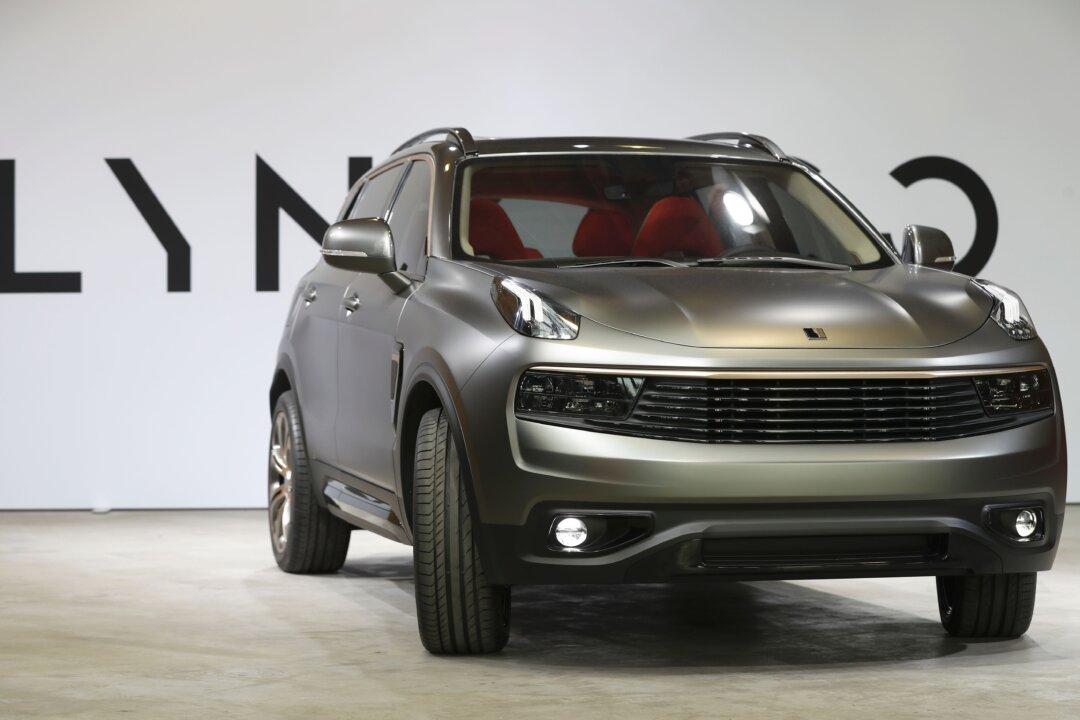One of the most ambitious new car debuts in recent memory occurred last week in Berlin.
The 01 SUV, from new car brand Lynk & Co, will be permanently connected to the internet and have a built-in “share” button to let owners rent their car via a smartphone app similar to home-sharing via AirBNB. The vehicle will also have an open API and dedicated app store to allow third party developers to build apps for the car.
Lynk & Co’s new SUV and other upcoming vehicles will all be available with state-of-the-art hybrid or plug-in hybrid powertrains, and emphasizes utility and practicality. Similar to Tesla Motors, vehicle purchases can be made online via Lynk & Co’s website. The brand heavily engages social media, targets urban millennials, and views Volkswagen and Fiat as key competitors.
All of this sounds impressive. Is Lynk & Co a new mainstream sub-brand of BMW or Mercedes-Benz parent Daimler?
No. Lynk & Co is a new brand from China’s Zhejiang Geely Holding Group Co.
Volvo Engineering
Geely currently owns Sweden’s Volvo Cars and the London Taxi Company. The new Lynk & Co 01 will be made in China and sales are expected to begin in 2018. A coupe-sedan, dubbed “02,” will follow shortly.
While the new car will be built in China, Lynk & Co emphasizes that its design and engineering is entirely European—a key selling point for the brand. Design of the vehicle was penned by Peter Horbury, Geely’s design director who cut his teeth previously at Volvo and Ford.
Geely has been planning this for years. The automaker set up China Euro Vehicle Technology AB in Gothenburg, Sweden three years ago. A lab staffed by ex-Volvo engineers headed by Mats Fägerhag, the former R&D director for defunct Sweden automaker Saab, led development of a new fully scalable “Compact Modular Architecture” vehicle platform that will be shared with upcoming Volvo compact cars. And power will come from three- or four-cylinder turbos and electric motors.
If Lynk & Co sounds like a fashion label, that’s not a coincidence. Company CEO Alain Visser—former executive at Volvo and Opel—called the 01 SUV a “smartphone on wheels” and has positioned the brand as a completely digital company catering to hip millennials.
Its website is a collage of photos of urban millennials—its “About Us” section features statements such as “We are Lynk & Co: Born Digital,” and its entire website feels more akin to that of a digital advertising agency than a car manufacturer.
In addition, Lynk & Co will not use traditional dealership networks or media advertising. Social media will be the preferred method of drawing customers, and sales will be made through its website.
A Path Less Traveled
With a little more than 530,000 in car sales last year in its home market, privately owned Geely trails larger, more established state-owned competitors—which rely on foreign-domestic joint-venture arms. Its domestic market share was a meager 2.6 percent in 2015.






